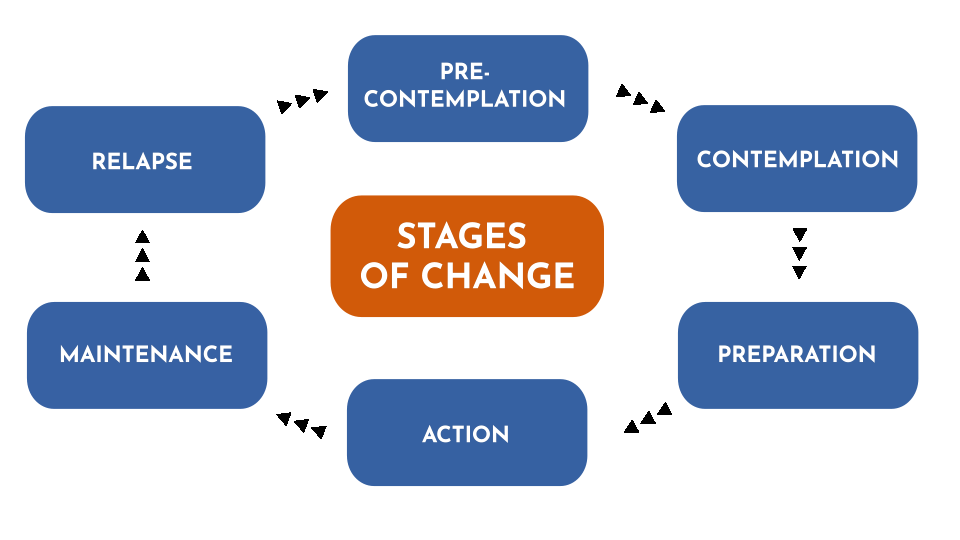3 Ways Families can Support People in Addiction Recovery
“While most of us have experienced some pain and anguish in our family, that family system can be a source of strength in healing from that pain.”
Dr. Julie Burbidge
Clinical Director, Homewood Ravensview
The negative impacts of addiction on families is well known. Less well known is the positive impact families can have on the addiction recovery journey. Parents, grandparents, spouses, siblings, and even children can play a powerful role in supporting a family member in addiction recovery and beyond.
In this blog post, we look at the difference families can make in the recovery journey and what they can do to support their loved ones as they transition from an inpatient treatment program to daily life.
Family support has a measurable impact
Supportive family dynamics can have a transformative impact. Family support can uplift every aspect of an individual’s life, from emotional wellbeing to physical health to academic and career success.
Even for an issue as complex and uncompromising as addiction, family support can make a measurable difference.
- A study of nearly 1,200 women who underwent inpatient treatment for substance abuse found that those with supportive families were less likely to relapse within six months of their discharge.
- A study of adolescents undergoing substance use treatment found that those who perceived their parents to be highly supportive had better outcomes than those who did not.
- A meta-analysis of 16 research studies found addiction treatments that involve family are associated with a 6% reduction in substance use compared to individual therapies.
- 65% of Canadians in treatment for an addiction said marital, family, or other relationships were the most important factor in initiating recovery.
Supporting a family member on the path to sobriety is no easy task, but the research is clear: family support can make a big difference.
“Positive attitudes and reinforcement from family members can inspire clients’ commitment to recovery,” explained Dr. Julie Burbidge, the Clinical Director at Homewood Ravensview, a private inpatient facility for mental health and addiction recovery in British Columbia. “It can also help them adapt to new challenges or limitations as they reintegrate with the wider world after spending time in treatment.”
Discharge is not the destination
When an individual completes a treatment program, it’s a major milestone and a cause for celebration, but it’s not the end of the road.
After the individual is discharged, the journey continues as they learn to resume their daily lives while remaining sober. The transition can be overwhelming, and it’s a time when family support in addiction recovery may be most needed.
While this transitional period is critical, it can be overlooked and under-resourced, which is why Homewood Clinics developed a series of post-discharge supports for patients and their families. Individuals who complete treatment are invited to participate in 12-month virtual support groups that meet weekly to focus on recovery management. For their families, an optional virtual meeting with a clinician is held each month at Homewood Ravensview. The facility is also launching a self-serve video hub where over 70 minutes of educational content covers a range of topics including talking to children about treatment, setting healthy boundaries, and understanding the stages of change in the journey to recovery. This will replace the virtual monthly meetings, and is meant to allow for more flexibility on when and how families receive these resources.
“Transitions are difficult because they involve uncertainty,” said Dr. Burbidge. “The more time and effort you put into planning for and discussing the transition plan, the more effective it will be.”
How to show your support
Supporting the recovery of an individual with an addiction isn’t easy, even for experts with years of specialized experience and training. For family members who don’t have that advantage, it’s even more intimidating.
Emotional dimensions can create further challenges. Even in families unaffected by addiction, relationships can be complicated. When addiction and mental health issues are added to the mix, the dynamics can be even more volatile.
“Being prepared for the transition home of a family member involves understanding your role in the recovery process,” said Dr. Burbidge. “It also means accepting that family life after treatment will be different and making a commitment to rebuilding relationships.”
Educating yourself ahead of time can help you prepare to provide family support in addiction recovery. Here are three of the most beneficial strategies for showing up in meaningful and constructive ways.
Understand the dynamics of change
People who undergo treatment for addiction are asked to change in profound ways, and that cycle of change doesn’t stop when they are discharged.
“Sometimes family members have the misperception that their loved one will be ‘fixed’ or ‘healed’ when they leave treatment,” Dr. Burbidge explained. “Treatment is an important step in a person’s healing and recovery, but the process continues long after their discharge.”
Understanding the stages of change can help family members recognize, accept, and meet people where they are in the journey.
The most important thing to understand about the path to change is that it isn’t tidy and linear. Just as a person with diabetes or asthma can relapse after being released from treatment, a person in addiction recovery may experience a relapse as they work toward sustained change. A relapse shouldn’t be seen as a failure but as one stage among many in the recovery process.
Stages of Change

As people pursue their recovery, they cycle through various stages that can involve new thoughts, attitudes, and behaviours. Every journey is different, and few journeys are perfectly linear. This diagram represents the change model used by Homewood Ravensview, a private inpatient facility for mental health and addiction recovery in British Columbia.
There are several ways you can help to prevent or mitigate the impact of a relapse:
- Talk to the person in recovery about relapse so they know you understand it’s something that might happen.
- Let them know that you are there to support them and ask if they would like you to play a role in their relapse prevention plan.
- Pay attention to your own behaviours. Families can sometimes fall back into old, destructive patterns.
Learn to communicate effectively
Effective communication is the key to healthy interpersonal relationships, but it’s easy to slide into defensiveness and blame during times of stress and anxiety.
Dr. Burbidge advises family members to try using a form of assertive communication called “‘I’ statements” to create a connection with the person they’re speaking to and avoid slipping into harmful communication patterns that rely on accusing, blaming, and shaming. ‘I’ statements focus on your own experience and how you feel about it rather than focusing on what you think the other person is doing wrong.
“This gives us a way to express our feelings in a manner that is respectful and increases the likelihood that the other person will be open to hearing what we have to say,” said Dr. Burbidge.
You can express yourself with ‘I’ statements using a simple formula: “I feel [describe your feeling] when you [describe the person’s actions] because [describe the reason it makes you feel a certain way].
Here’s an example:
| Conventional ‘you’ statement | ‘I’ statement |
|
“You never listen to me. You make me so angry because you just don’t care enough about me to bother to listen when I’m trying to talk.”
|
“I feel angry when you interrupt me because It’s important to me that I’m able to share my ideas with you and feel heard by you.”
|
Set and respect boundaries
During treatment for addiction, people learn how to create boundaries as a way of staying on the path toward healing. As the family member of a person in recovery, you can support them by recognizing and respecting those boundaries. Setting boundaries of your own can also be very helpful in allowing you to preserve your energies and self-respect as you explore new ways of relating to that person.
“Boundaries are a way to establish where you end and other people or external influences begin,” explained Dr. Burbidge. “They are a way of setting healthy limits around what we will and won’t accept or do in our relationships with others.”
To set a healthy boundary with someone:
- Describe the boundary you are setting or the action that is causing you discomfort.
- Express how the situation makes you feel using ‘I’ statements.
- Describe the behavioural change you are looking for in the future.
- Without making threats, describe the action you will take if your boundary is crossed.
Here is an example:
“I feel angry when you interrupt me because It’s important to me that I’m able to share my ideas with you and feel heard by you. Moving forward, I would like it if we could each take turns speaking. This will help us better understand each other and hopefully feel more connected. The next time you interrupt me, I will leave the room and we can continue the conversation later.”
Take the next step together
An individual who has completed an inpatient addiction treatment program has done some hard and courageous work toward furthering their recovery. Re-entering their normal lives post-treatment is the next big step in their journey. By understanding the stages of that journey and learning new ways of communicating and interacting along the way, families can make a positive difference in the individual’s recovery experience and outcomes.
“To truly understand the individual, we have to understand the family system of that individual,” Dr. Burbidge said. “While most of us have experienced some pain and anguish in our family, that family system can be a source of strength in healing from that pain.”
For more insight into supporting a family member in addiction recovery, read these articles from Homewood Ravensview, an addiction treatment program in British Columbia, Canada.
Understanding Family Dynamics: What healthy family traits look like, and how to identify toxic family dynamics.
Supporting Those with Addiction: How to support family members who haven’t reached out for help yet.
